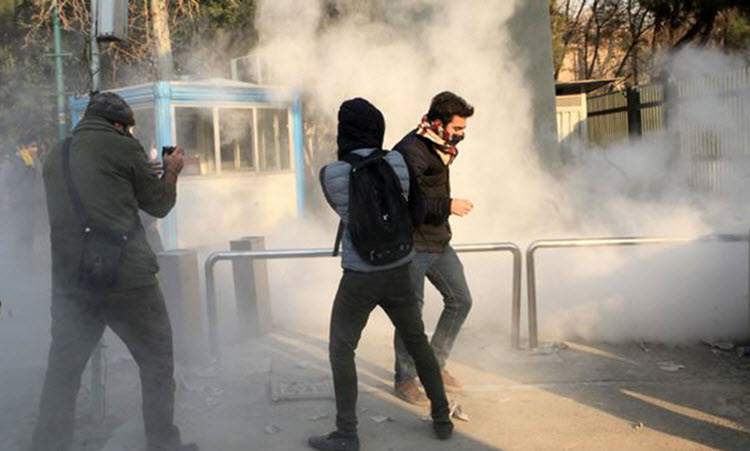
Iran Focus
London, 9 Jan – Thanks to global backlash over the restriction of certain social media outlets and other internet properties during the protest in Iran, the Iranian Regime may be rethinking their cyber battle against protesters.
President Hassan Rouhani said on Monday that he did not want to “permanently” restrict the people’s access to social media, which contradicts the Regime’s decision to block Instagram and Telegram in December because it was believed that they were fuelling the widespread protests across Iran.
He said: “People’s access to cyberspace should not be cut permanently; one cannot be indifferent to people’s lives and businesses. Every technology can be abused by some; we cannot block the technology and the benefits that people are taking from it.”
However, the sites still remain blocked.
It is worth noting that this weak response to calls for free internet access is only because he felt pressure from the international community and not his own people.
It is also worth noting that the people that Rouhani considers to be abusing the internet are not those restricting access to it but those using it to communicate- both amongst themselves and with people around the world. Whether the Iranian Regime like it or not, this is how the internet was designed to be used.
Still, the Regime has always exerted a strong grip over its people’s use of social media; lest the people’s complaints be visible to the entire world. Technically, Facebook and Twitter were banned during the 2009 protests and have remained as such ever since. Many Iranians are using virtual private networks (VPNs) to evade this censorship, as they are doing to access Instagram and Telegram.
Holly Dagres, a former US State Department analyst who now runs The Iranian website, said: “The Iranian government tends to slow the Internet in times of big protests like 2009 and this past week’s protests. They also have censored Twitter, Facebook, and YouTube. But that hasn’t stopped Iranians from using circumvention tools like VPNs to override the censorship. Iranians are professionals when it comes to circumvention, and though the government attempted to curb social media coverage of the protests, it hasn’t stopped Iranians from sharing information with the world.”
As always, there is one rule for the people and another for the Regime. Many members of the Regime use their own Twitter/Facebook pages to spread propaganda against their people.
Current Restrictions
The Regime claimed that they blocked Telegram because the app’s CEO Pavel Durov refused to shut down channels that were being used by protesters- because that’s a clear violation of the right to free speech- but it wasn’t clear whether this was permanent or temporary.
Durov responded to the Regime’s allegations that certain channels were “encouraging hateful conduct” by explaining that they had suspended a channel for calling for violence- for which the channel administrators have apologised and created a new peaceful channel- and that he is proud of allowing the Iranians freedom of speech.
Durov said: “We are proud that Telegram is used by thousands of massive opposition channels all over the world. We consider freedom of speech an undeniable human right, and would rather get blocked in a country by its authorities than limit peaceful expression of alternative opinions.”
There are also reports from the BBC that the Regime is using Twitter bots to push their own agenda and undermine tweets made by protesters, such as denying that demonstrations had taken place.
The Regime has also been cracking down on the protesters, with Maryam Rajavi (leader of the Iranian Resistance) writing on the Wall Street Journal that at least 50 people have been killed and over 1,000 arrested during these protests.


